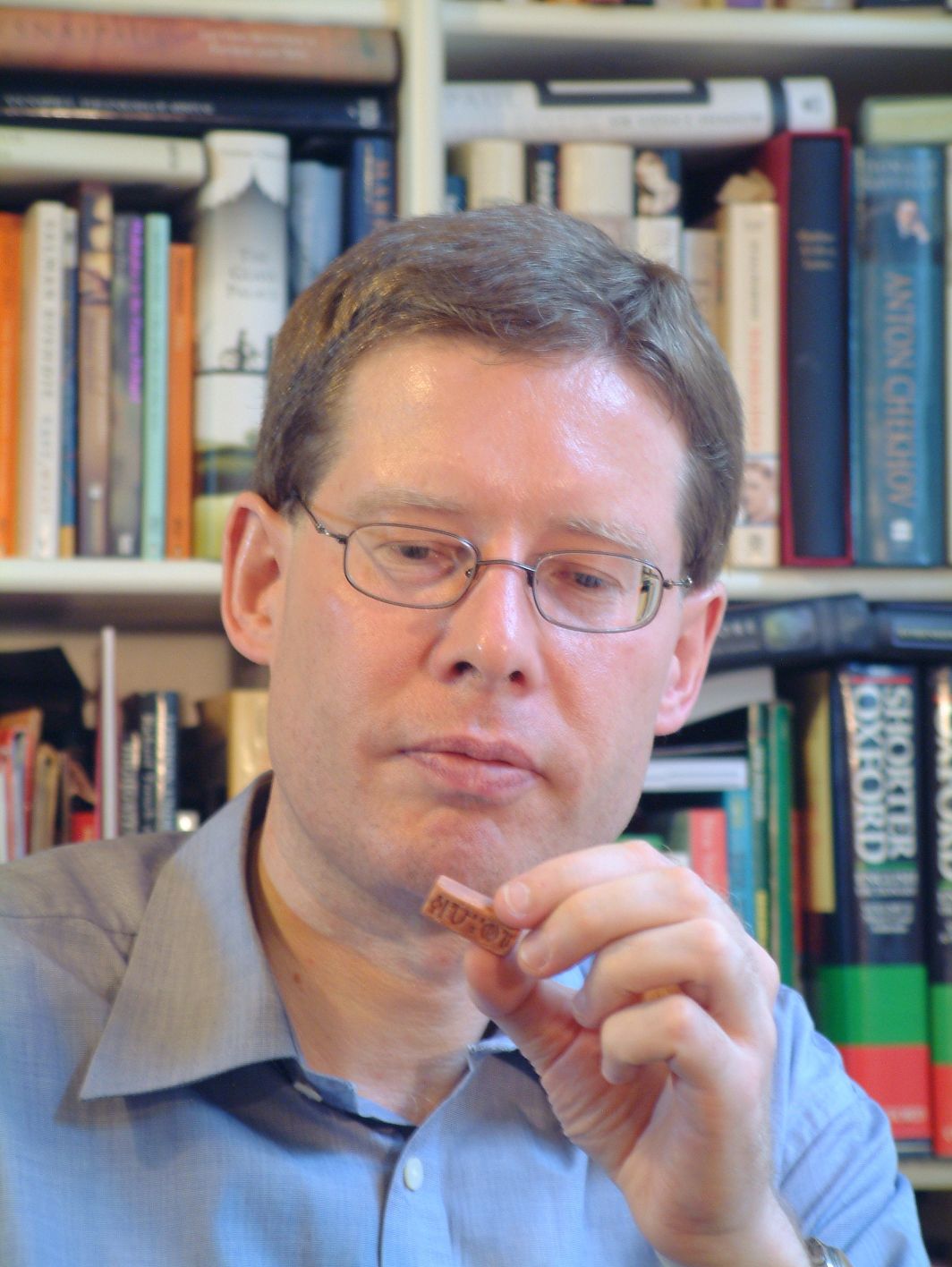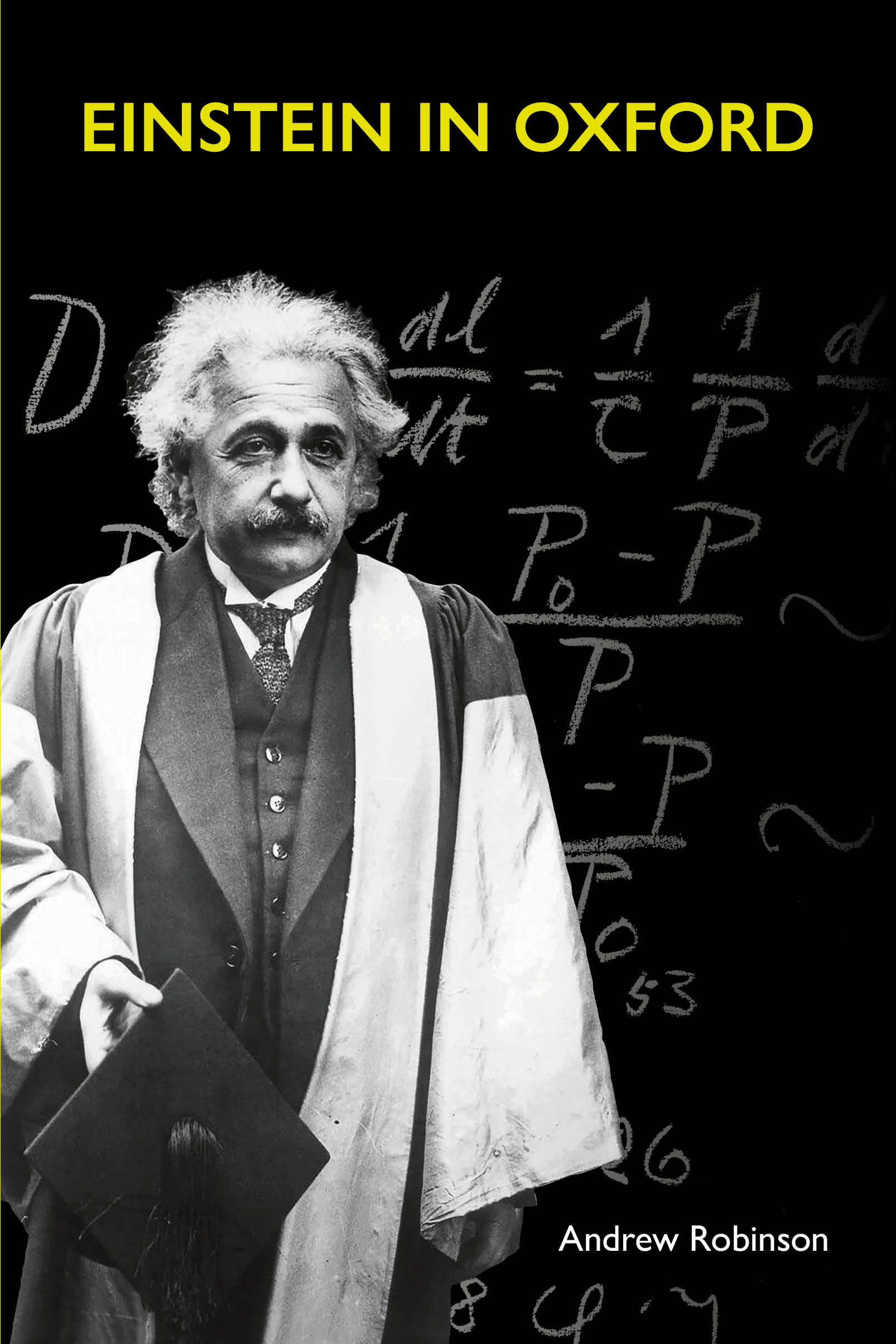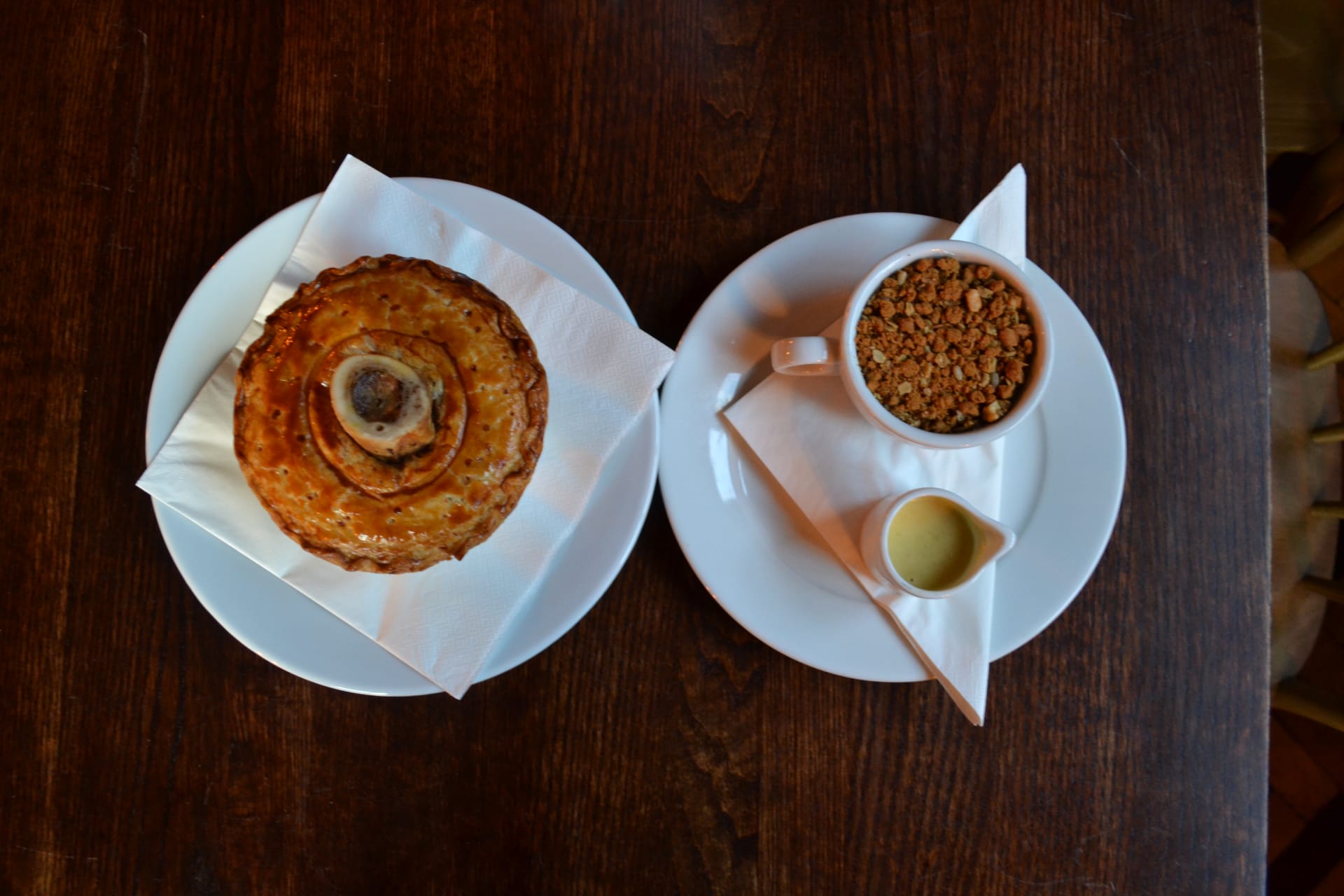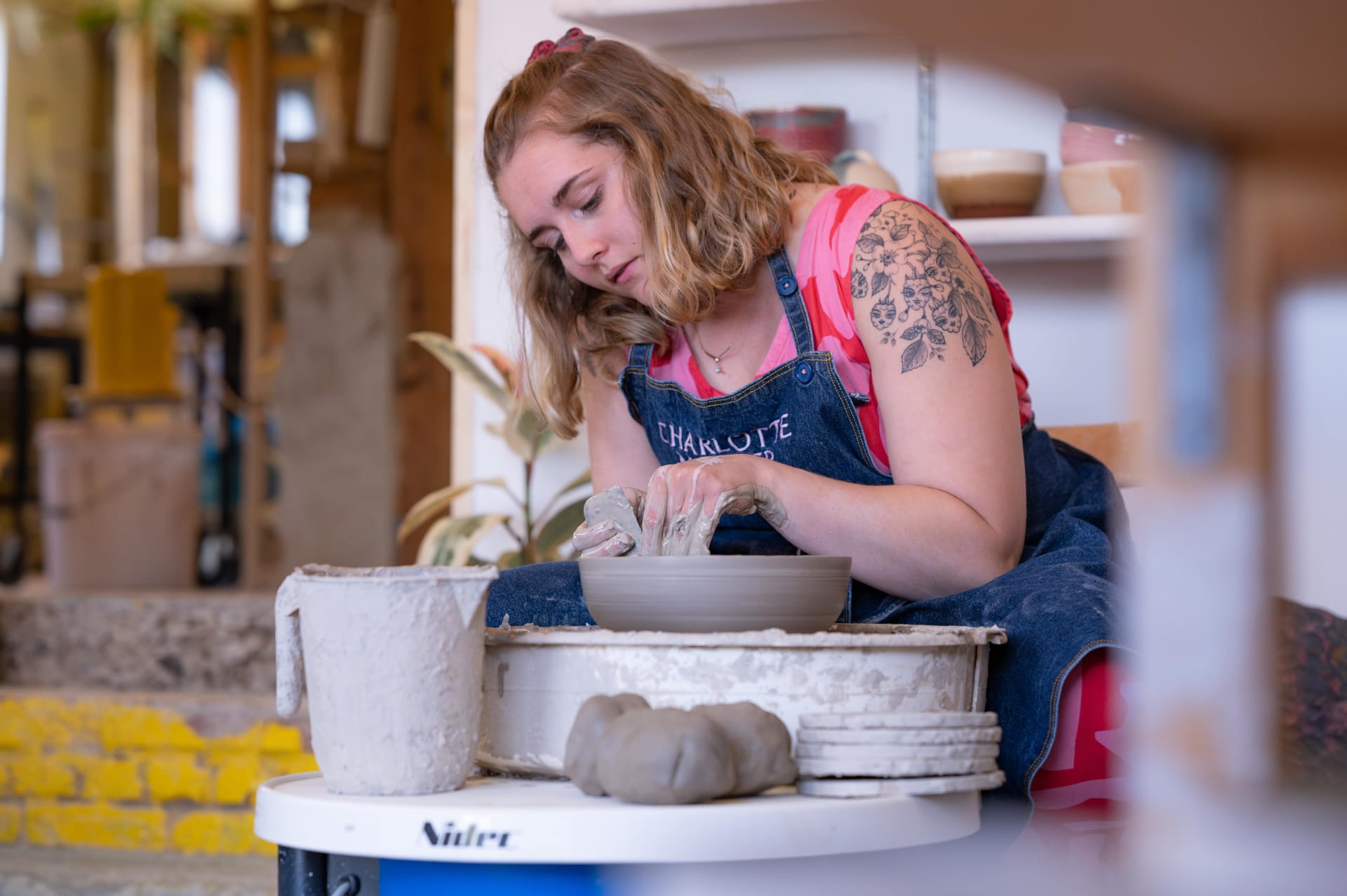Andrew Robinson has written some twenty-five books, including two on Albert Einstein (Einstein on the Run, 2019; and Einstein: A Hundred Years of Relativity, 2022), as well as articles and reviews on Einstein for leading magazines and newspapers. His latest work, Einstein in Oxford (published by Bodleian Library Publishing), is out on 12 September, and is, perhaps, of particular interest to Oxfordians as it is devoted to Einstein's relationship with the city.
Einstein first came to Oxford in 1931 to receive an honorary degree and to lecture on relativity and the Universe. He returned in 1932 and again in 1933, as a refugee from Nazi Germany. Whilst in the city he participated in its science, music and politics, and wandered its streets alone. His diary entries reveal not only his humour but also his observations on the people he met, including future novelist William Golding.
Einstein and 1930s Oxford were ‘exquisitely matched and ill-matched’. Robinson’s book reveals further detail on this period of the great man’s life and casts new light on why Einstein continues to be the world’s most famous scientist.
The following extract is taken from Einstein in Oxford by Andrew Robinson, £16, Bodleian Library Publishing, out 12 September.
bodleianshop.co.uk/products/einstein-in-oxford
*****
“I rejoice at the new universe to which [Einstein] has introduced us. I rejoice in the fact that he has destroyed all the old sermons, all the old absolutes, all the old cut and dried conceptions, even of time and space, which were so discouraging...”
[speech by George Bernard Shaw, 1930]
Albert Einstein visited Britain in October 1930 from his home in Germany to attend a charitable fund-raising dinner for disadvantaged East European Jews, given in his honour in London. There he heard George Bernard Shaw’s words of praise quoted above – part of a speech ‘renowned as one of the finest 20th century examples of a public eulogy’, according to a recording of it reissued by the British Library in 2005 to celebrate the centenary of Einstein’s special theory of relativity. The great dramatist and writer clearly placed the great physicist in the pantheon of the immortals, while admitting that he himself had been unable to understand relativity fully, despite his best efforts. According to Shaw, Einstein belonged among the ‘makers of universes’, in the company of Pythagoras, Ptolemy, Aristotle, Copernicus, Kepler, Galileo and Newton – ‘not makers of empires’ like Alexander and Napoleon. ‘And when they have made those universes, their hands are unstained by the blood of any human being on earth.’
Einstein’s response in German mixed genuine humility with typical humour. ‘I, personally, thank you for the unforgettable words which you have addressed to my mythical namesake, who has made my life so burdensome’, yet who, ‘in spite of his awkwardness and respectable dimension, is, after all, a very harmless fellow’.
About six months later, in May 1931, Einstein’s legend accompanied him to Oxford. He went there as a guest of the college Christ Church, to give three lectures on relativity, cosmology and his latest work in physics at Rhodes House, and to receive an honorary Oxford doctorate at the Sheldonian Theatre. While lecturing, Einstein naturally used equations and diagrams chalked on several blackboards. The second lecture required ‘two blackboards, plentifully sprinkled beforehand in the international language of mathematical symbol’, as The Times reported. They described the density, size and age of the expanding universe, which Einstein calculated to be ten billion years old.
Today, one of those blackboards is the most famous object of the 18,000 or so objects in Oxford’s History of Science Museum, located close to the Sheldonian Theatre and the Bodleian Library. Visitors from all over the world come to the museum especially to view the Einstein blackboard. It is a ‘relic of a secular saint’, as the museum’s website ironically describes it. ‘Some visitors today treat it almost as an object of veneration, anxiously requesting its location on arrival and eager to experience some connection with this near-mythical figure of science.’

The idea of rescuing and preserving Einstein’s blackboards seems to have come from some Oxford dons who attended his first lecture on 9 May. A memo from the then-warden of Rhodes House to one of the Rhodes trustees, dated 13 May, states plainly that:
Some of the scientists seem to be anxious to secure for preservation in the Museum the blackboard upon which Einstein draws. I was first approached about it by de Beer, who is a fellow of Merton [College], and now Gunther has written to me, asking whether, if it is desired, the blackboard with Einstein’s figures on it may be given to the university.
Gavin de Beer was an embryologist, who became a fellow of the Royal Society and director of the Natural History Museum in London. Robert Gunther was a zoologist and historian of science, who in 1924 created the nucleus of what became the Museum of the History of Science in Oxford in 1935. Yet another Oxford academic involved in the rescue was the chemist Edmund Bowen, also a fellow of the Royal Society, whose laboratory work in photochemistry had confirmed some of Einstein’s theoretical work. Presumably, they were among the audience on 16 May for the second Rhodes House lecture. Certainly, on 19 May, Gunther formally thanked the secretary of the Rhodes trustees for ‘your present’ to the newly established museum ‘of two blackboards used by Professor Einstein in his lecture’. Although one of these blackboards was later accidentally cleaned in the museum’s storeroom, the other one survived, to be venerated in our time.

Einstein, had he come to know of this accidental erasure of his work, would certainly have laughed, as he loved to do right until the end of his life in 1955. In May 1931, he was firmly opposed to preserving his blackboards – firstly because he regarded them as mere ephemera, secondly because they showed work in progress that was almost certain to be superseded by his subsequent calculations, and lastly because their preservation drew invidious attention to his legendary status. Indeed, on 16 May, after the second lecture, Einstein told his diary with singular annoyance:
The lecture was indeed well-attended and nice. [But] the blackboards were picked up. (Personality cult, with adverse effect on others. One could easily see the jealousy of distinguished English scholars. So I protested; but this was perceived as false modesty.) On arrival [back in Christ Church] I felt shattered. Not even a cart-horse could endure so much!
In a way, the whole episode of the blackboards – mingling as it did genuinely warm appreciation of the man with relatively superficial understanding of his thought – is typical of Einstein’s experience of Oxford, on his three residences in the city in 1931, 1932 and 1933. While he clearly enjoyed his personal contact with scientists and a wide range of non-scientists in Oxford, including artists and musicians, he did not much care either for his legendary status or for the formalities of college and university life, which generally amused and occasionally irritated him. In his diary, he mocked the dinner-jacketed and gowned dons dining in the ceremonial splendour of Christ Church Hall as ‘the holy brotherhood in tails’ (‘der heiligen Brüderschaar im Frack’). He always disliked having to wear a formal dress – and even, famously, socks.
In a thoughtful and witty poem (now in the Bodleian Library) that he wrote to thank the absent Christ Church don whose college rooms he borrowed in 1931, Einstein called himself, only partly in jest, an old ‘hermit’ and a ‘barbarian’ on the roam.
As the story of Einstein in Oxford told in this companion will reveal, he always stayed true to himself – wherever he roamed, whether it was Britain, Germany, Japan, Palestine, South America or the United States, in which he spent the final two decades of his life. And this, most probably, is why Einstein still appeals so strongly beyond the world of scientists to the entire globe.
Andrew Robinson will be speaking about Einstein in Oxford on 26 September at the Weston Library, Bodleian Libraries (1pm – 2pm). It is free to attend, but booking is essential. He will also be speaking at the Ashmolean Museum on 30 November.
Visit the Events pages at bodleian.ox.ac.uk and ashmolean.org for further details.










